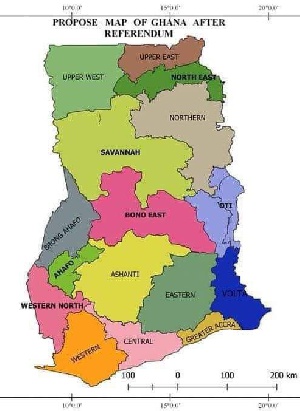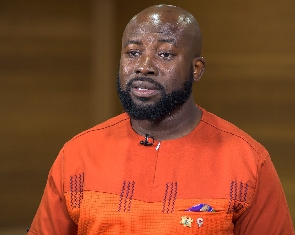Casting his ballot as part of his civic responsibility in the creation of the proposed six new regions in the country, on Thursday, December 27, 2018, Vice-President Mahamudu Bawumia was reported to have earnestly urged all eligible voters in the concerned plebiscite areas to turn out in their numbers and resoundingly exercise their democratic right to vote (See “Vice-President Bawumia Casts His Vote in the Ongoing Special Referendum” Modernghana.com 12/27/18). Indeed, Dr. Bawumia would have been even more poignant and effective in his exhortation, if the former Deputy-Governor of the Bank of Ghana had also opportunely added that the exercise of the franchise, vis-à-vis the proposed creation of the six additional regions was more of an inviolable act of internal self-determination and a bounden obligation that would literally level out the proverbial playing field for those of us who have been flagrantly and perennially shortchanged by the present system of just 10 administrative regions in a nation of some 30 million citizens, with extremely unequal levels of socioeconomic, cultural and technological development.
It goes without saying that the one significant issue that has emerged in the white-hot debate over the creation of the new regions is the obvious determination by those whose needs, desires and aspirations are well served by the present system to ensure that they continue to, uninterruptedly, enjoy the perks and privileges of being very close to the center of our governance system and the spoils of power at the damnable expense of those who are politically far removed from such perks and privileges. Consequently, the most ardent critics of the proposed expansion of the regional centers of power and governance have vehemently decried the imperative necessity of sharing the nation’s “very limited resources” with the perennially marginalized and effectively sidelined. For such critics, increasing the number of citizens at the dinner table of political inclusiveness can only mean less spoils or booty for those who have long come to take such privileges for granted as to envisage them as their inviolable citizenship and birth rights.
This is what the Togbe Afede Affair or to-do against the creation of the Oti Region is incontrovertibly about. But, of course, even as this writer and other students and scholars of Ghana’s political culture have had occasion to point out, there is absolutely nothing either divine or inviolable about the existence of the present 10 regions of the country three of which were actually the veritable creation, at least one of them technically, of the peremptory pontiff of these same critics, namely, Chairman Jerry John Rawlings, the former President and founding-father of the country’s main opposition National Democratic Congress (NDC). The days when “democracy” was stage-managed by the NDC Posse and their cronies and associates of such left-leaning political parties and organizations as the rump-Convention People’s Party (r-CPP), the Progressive People’s Party (PPP), the rump-CPP breakaway, and the People’s National Convention (PNC), among a host of others, are well behind us.
Personally, I am avidly in favor of the splitting up of the present Northern Region into the proposed three regions of Savannah, North-East and Northern Regions (if memory serves me accurately), if also because the seemingly intractable feuding and feudal regicidal barbarism of the Dagomba chieftains threatens to politically destabilize the multiethnic present-day Northern Region, as well as the sociocultural and economic development of the entire region. Now, hopefully, the rest of the non-Dagomba ethnic polities of the soon-to-be North-East and Savannah regions will be able to healthily move on peacefully, productively and meaningfully with their lives. Absolutely no ethnic group in Ghana has a right to suppress and savagely regress the collective development of our modern nation-state, merely because a self-appointed group of psychologically unenlightened tribal chieftains and some of their captive and misguided subjects have neither the apparent desire nor the capacity to sign on to the high-end or unprecedently technologically sophisticated world of the Twenty-First Century.
*Visit my blog at: kwameokoampaahoofe.wordpress.com Ghanaffairs
By Kwame Okoampa-Ahoofe, Jr., PhD
English Department, SUNY-Nassau
Garden City, New York
Opinions of Sunday, 30 December 2018
Columnist: Kwame Okoampa-Ahoofe, Jr., Ph.D.















